
Tha Maka: A Hidden Gem in Kanchanaburi
Nestled in the scenic province of Kanchanaburi, Tha Maka is a serene neighbourhood that offers a tranquil escape from the bustling city life. This charming locale is known for its lush green landscapes, picturesque views, and a rich cultural heritage that promises an authentic Thai experience. One of the highlights of Tha Maka is its proximity to the Mae Klong River, where you can enjoy leisurely boat rides and witness the local way of life. The riverbanks are dotted with traditional Thai houses, giving you a glimpse into the region's history and culture. For nature enthusiasts, the surrounding areas offer numerous hiking trails and natural reserves, perfect for a day of exploration. Tha Maka is also a gateway to some of the most iconic attractions in Kanchanaburi. From the historical sites of the Death Railway and the Bridge over the River Kwai to the serene Erawan Waterfalls, you are never far from an adventure. The neighbourhood itself is peppered with local markets, quaint cafes, and temples, making it a delightful place to soak in the local culture and cuisine.
Local tips in Tha Maka
- Visit early in the morning to enjoy the tranquil atmosphere and avoid the midday heat.
- Don't miss the local markets for authentic Thai snacks and souvenirs.
- Wear comfortable shoes as the area offers numerous walking and hiking opportunities.
- Carry some cash as many local vendors may not accept credit cards.
- Hire a local guide to get in-depth knowledge about the historical sites and hidden gems.
Tha Maka: A Hidden Gem in Kanchanaburi
Nestled in the scenic province of Kanchanaburi, Tha Maka is a serene neighbourhood that offers a tranquil escape from the bustling city life. This charming locale is known for its lush green landscapes, picturesque views, and a rich cultural heritage that promises an authentic Thai experience. One of the highlights of Tha Maka is its proximity to the Mae Klong River, where you can enjoy leisurely boat rides and witness the local way of life. The riverbanks are dotted with traditional Thai houses, giving you a glimpse into the region's history and culture. For nature enthusiasts, the surrounding areas offer numerous hiking trails and natural reserves, perfect for a day of exploration. Tha Maka is also a gateway to some of the most iconic attractions in Kanchanaburi. From the historical sites of the Death Railway and the Bridge over the River Kwai to the serene Erawan Waterfalls, you are never far from an adventure. The neighbourhood itself is peppered with local markets, quaint cafes, and temples, making it a delightful place to soak in the local culture and cuisine.
Iconic landmarks you can’t miss
Wat Tham Suea (Tiger Cave Temple)
Discover the spiritual and natural beauty of Wat Tham Suea, Kanchanaburi's iconic Tiger Cave Temple, a breathtaking blend of culture and adventure.
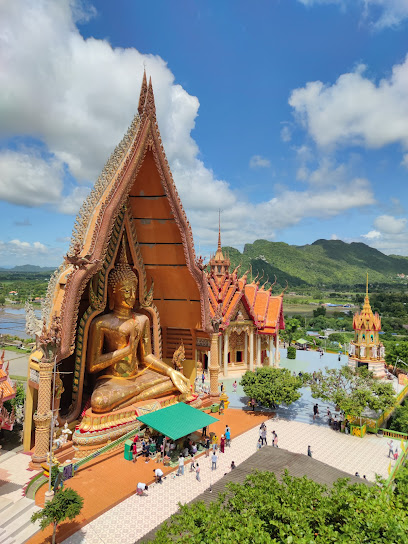
Giant Raintree (Monkey Pod Tree)
Experience the serene beauty of the Giant Raintree in Kanchanaburi, a natural wonder perfect for relaxation and exploration.
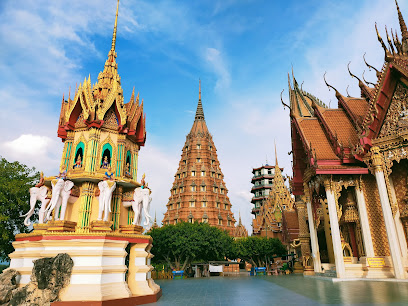
River Khwae Bridge
Discover the River Khwae Bridge, a historic landmark in Kanchanaburi that embodies resilience and offers breathtaking views and rich cultural experiences.
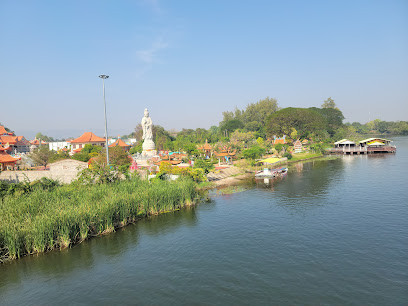
Mallika R.E 124
Discover the heart of Thai culture at Mallika R.E 124, an enchanting cultural center in Kanchanaburi showcasing art, cuisine, and traditional crafts.
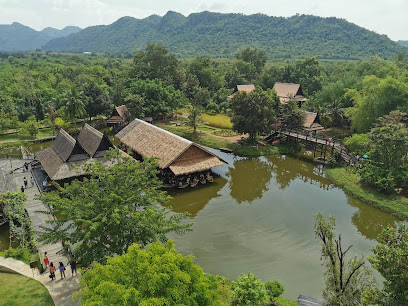
Wat Tham Phu Wa
Explore the serene Wat Tham Phu Wa, a captivating Buddhist temple in Kanchanaburi, where nature and spirituality converge for a memorable visit.
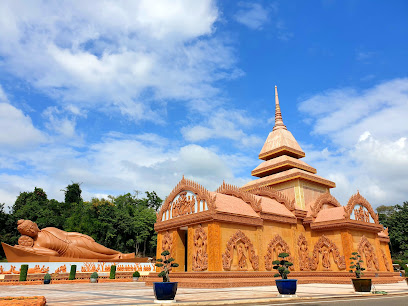
Mueang Sing Historical Park
Discover the ancient wonders of Mueang Sing Historical Park, a Khmer-style gem in Kanchanaburi showcasing Thailand's rich cultural heritage.
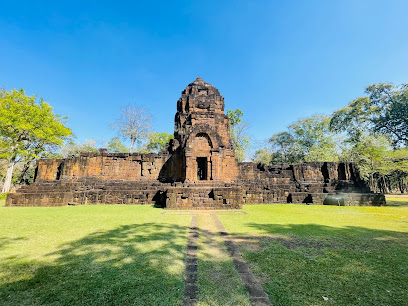
Wat Ban Tham
Discover the tranquil beauty and spiritual serenity of Wat Ban Tham, a stunning Buddhist temple in Kanchanaburi, Thailand.
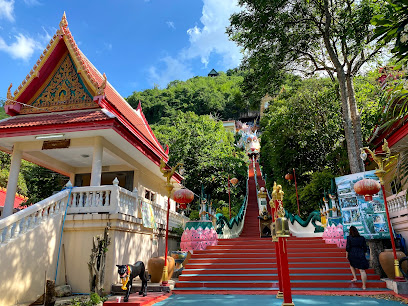
Thailand-Burma Railway Centre
Explore the moving history of the Thailand-Burma Railway at this insightful museum, a tribute to resilience and remembrance.
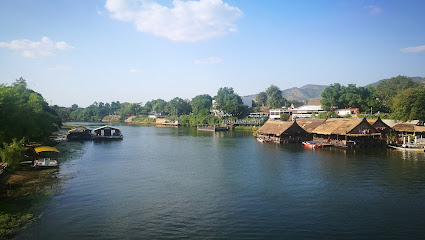
JEATH War Museum
Explore the JEATH War Museum in Kanchanaburi, where history and resilience intertwine to tell the poignant stories of World War II.
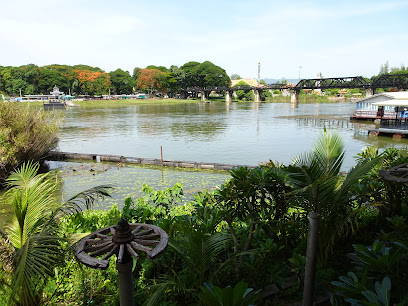
Kanchanaburi War Cemetery (DonRak)
Explore Kanchanaburi War Cemetery, a serene site honoring the bravery of soldiers from World War II in Thailand's beautiful Kanchanaburi province.
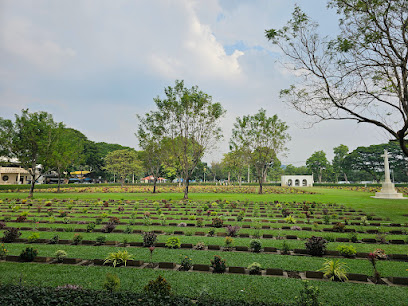
Kanchanaburi Town Gate
Discover the rich history and vibrant culture at Kanchanaburi Town Gate, a must-visit landmark in Thailand's captivating Kanchanaburi region.
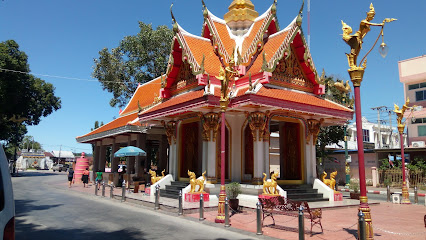
Street Art ท่าม่วง
Explore the colorful street art of Tha Muang, Kanchanaburi, where creativity meets culture in a vibrant urban landscape.
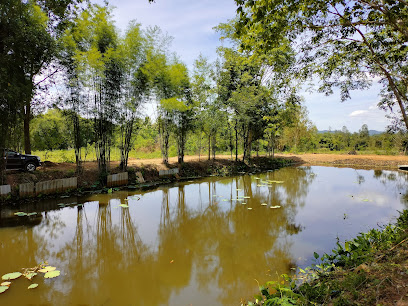
Unmissable attractions to see
Wat Tham Suea (Tiger Cave Temple)
Experience the serene beauty and spiritual depth of Wat Tham Suea, a stunning Buddhist temple in Kanchanaburi, Thailand, with panoramic views and cultural richness.
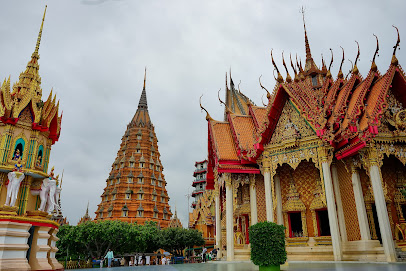
Giant Raintree (Monkey Pod Tree)
Explore the Giant Raintree in Kanchanaburi, a breathtaking natural attraction perfect for relaxation, adventure, and capturing unforgettable memories.
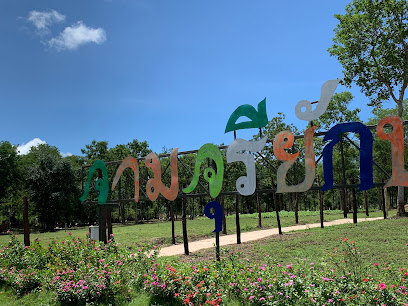
Mallika R.E 124
Explore the cultural gem of Kanchanaburi at Mallika R.E 124, where tradition meets stunning architecture in a serene setting.
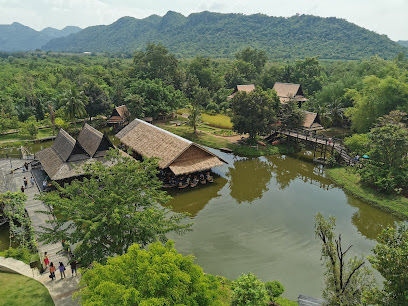
Safari Park Kanchanaburi
Immerse yourself in the wild at Safari Park Kanchanaburi, where adventure and wildlife conservation come together in a breathtaking setting.
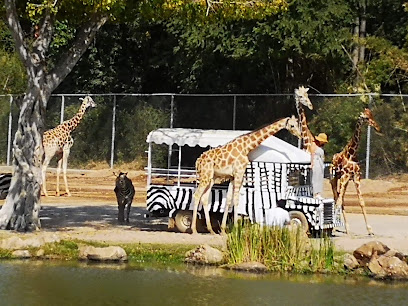
Wat Khao Sung Chaem Fa
Discover the tranquil beauty of Wat Khao Sung Chaem Fa, a serene Buddhist temple in Kanchanaburi that offers a peaceful retreat and rich cultural experience.
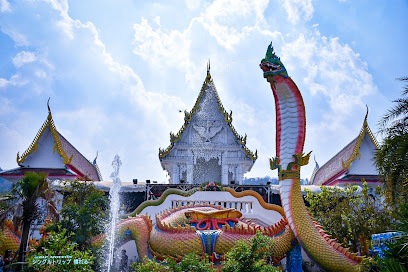
Skywalk Kanchanaburi City
Experience stunning views and natural beauty at Skywalk Kanchanaburi City, a must-visit attraction for every traveler in Thailand's picturesque landscapes.
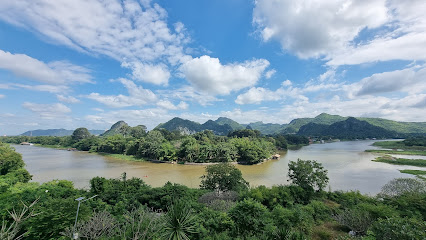
Tham Kaew Kanchanaphisek
Discover the allure of Tham Kaew Kanchanaphisek, a scenic destination in Kanchanaburi, Thailand, perfect for adventure and relaxation.
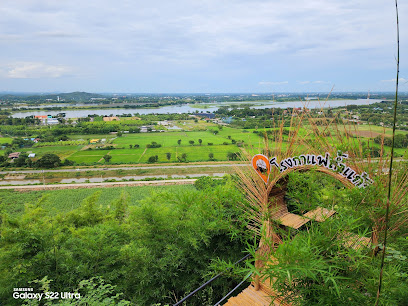
Chuk Don Beach
Discover the serene beauty of Chuk Don Beach in Kanchanaburi—an ideal retreat for relaxation, nature walks, and stunning sunsets.
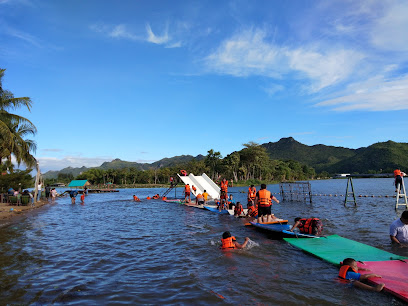
Heavenly Dragon Cave
Explore the breathtaking beauty and mystical charm of Heavenly Dragon Cave, a must-visit natural wonder in Kanchanaburi, Thailand.
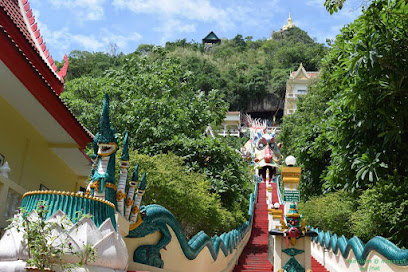
Wang Sangkawat Fish Park
Experience the serene beauty of Wang Sangkawat Fish Park in Kanchanaburi, a tranquil escape for nature lovers and families alike.
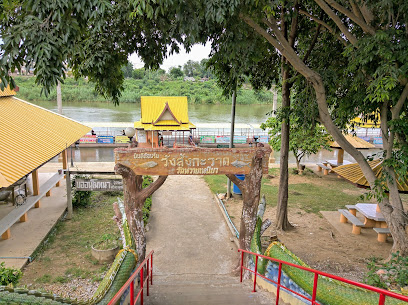
หาดทรายลูกแก
Explore the captivating beauty and rich culture of Kanchanaburi's hidden gem, a must-visit tourist attraction in Thailand.
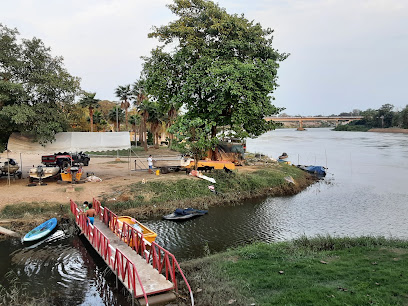
kappa garden farm
Discover the serene beauty of Kappa Garden Farm in Kanchanaburi, where lush gardens meet cozy cafe delights amidst nature's tranquility.
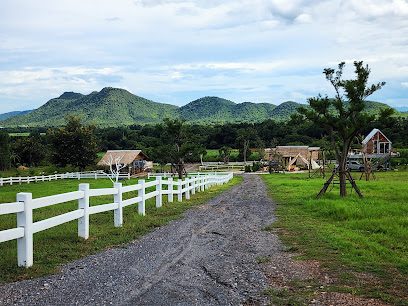
Essential places to dine
Fried Frogs Restaurant
Discover the taste of adventure at Fried Frogs Restaurant in Kanchanaburi – where frog legs take center stage alongside authentic Thai flavors.
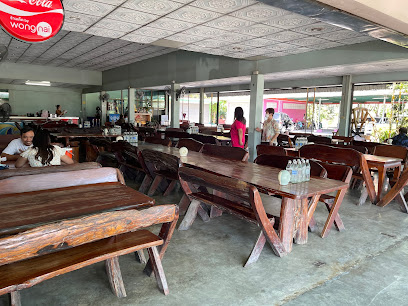
ครัวริมน้ำ คุณสุริยา
Discover authentic Thai cuisine with scenic riverside views at Krua Rim Nam Khun Suriyah in Kanchanaburi.
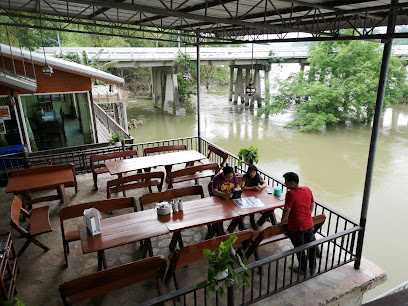
ร้านเล็ก - เล็ก แกงป่า
Discover authentic Thai flavors at ร้านเล็ก - เล็ก แกงป่า in Kanchanaburi; where every dish tells a story.
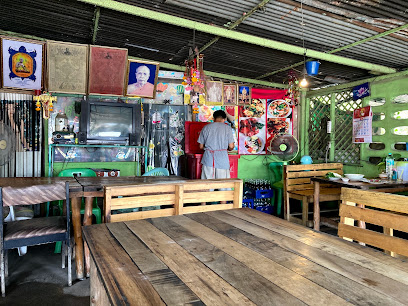
เส้น’Sense
Savor authentic Thai flavors at เส้น’Sense in Tha Maka District - where every dish tells a story.
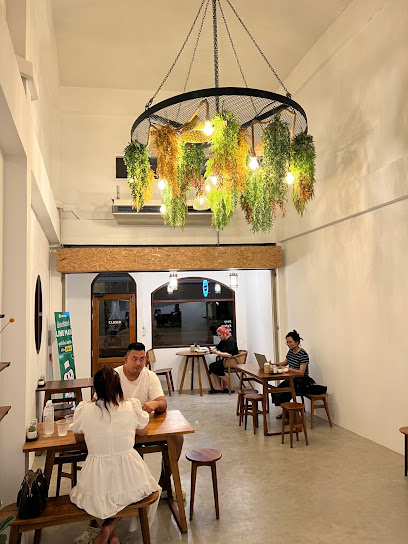
ครัวมีเบิ้ล & Meble Cafe
Discover family-friendly dining at ครัวมีเบิ้ล & Meble Cafe in Kanchanaburi - where authentic Thai flavors meet warm hospitality.
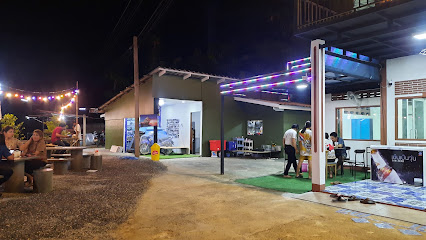
Somtum tamaka
Discover authentic Thai cuisine at Somtum Tamaka in Tha Maka, where every dish tells a story of flavor and tradition.
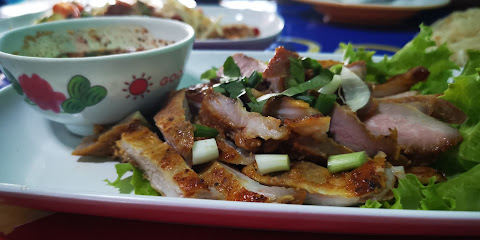
The Yellow Table
Discover authentic Thai flavors at The Yellow Table in Kanchanaburi—a must-visit culinary destination for every traveler.
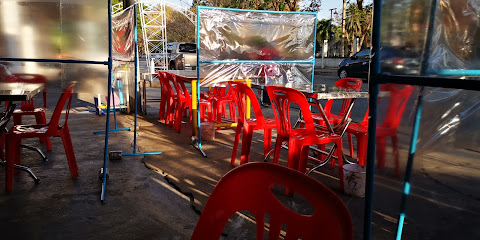
ร้านก๋วยเตี๋ยวเจ้ดาว
Discover authentic Thai flavors at ร้านก๋วยเตี๋ยวเจ้ดาว in Kanchanaburi - a must-visit for noodle lovers!
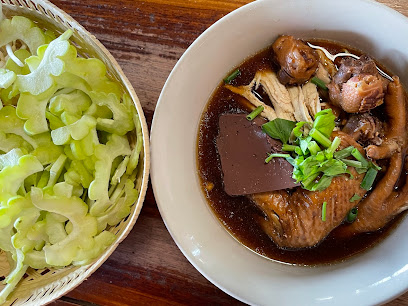
ป้าสาคร แกงใต้
Experience authentic Southern Thai cuisine at ป้าสาคร แกงใต้ in Kanchanaburi – where every dish tells a story.
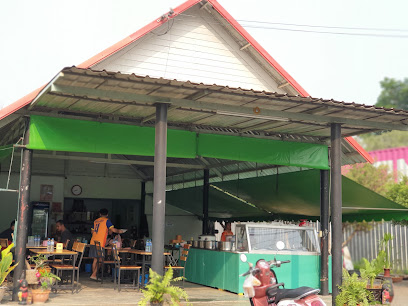
ร้านช๊อปเปอร์
Experience the authentic taste of Thailand at ร้านช๊อปเปอร์ in Tha Maka District, where delicious dishes meet a warm atmosphere.
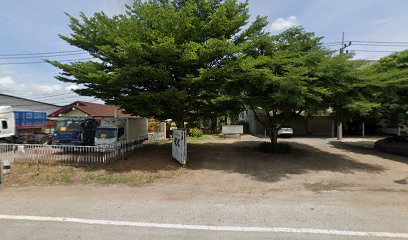
Markets, malls and hidden boutiques
Tha Maka Shopping Mall
Discover local flavors and global brands at Tha Maka Shopping Mall, the premier shopping destination in Kanchanaburi, Thailand.
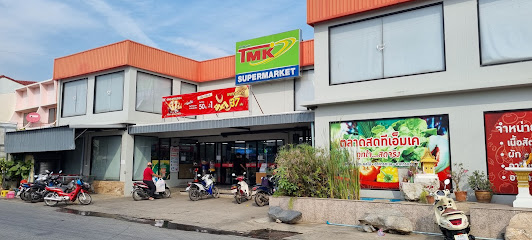
ร้านกรงนกท่ามะกา ค้าส่ง-ค้าปลีก
Experience the vibrant atmosphere and unique local products at ร้านกรงนกท่ามะกา, a must-visit shopping destination in Tha Maka, Kanchanaburi.
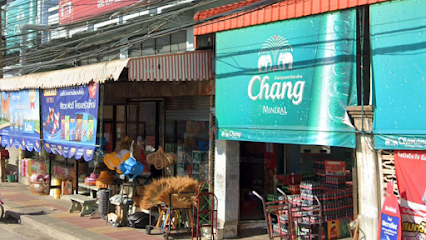
Ma Charoen Pha Nit
Explore the vibrant flavors and local products at Ma Charoen Pha Nit, Kanchanaburi's essential supermarket for tourists seeking authentic Thai experiences.
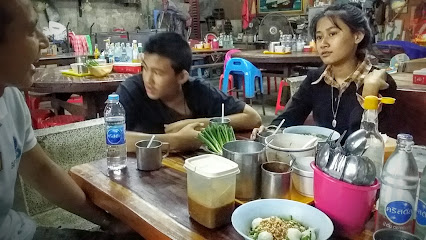
ลุงเดช Green Shop กาญจนบุรี
Discover the unique blend of cannabis and floral beauty at ลุงเดช Green Shop in Kanchanaburi, where nature meets local culture.
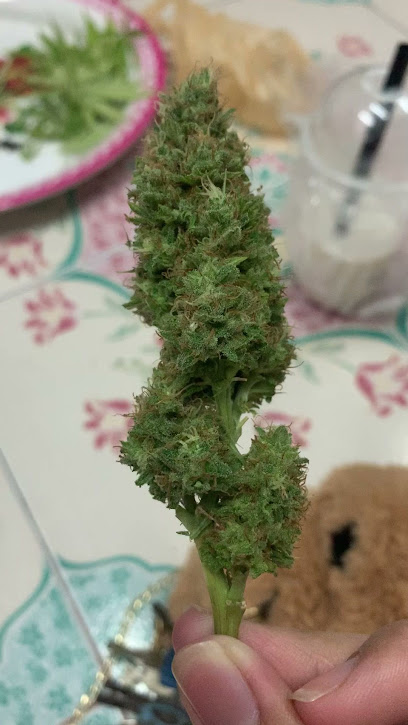
ร้านวิภาจรี เจ๊ตุ่น
Explore the charm of Thai craftsmanship at ร้านวิภาจรี เจ๊ตุ่น, your go-to home goods store in Kanchanaburi.
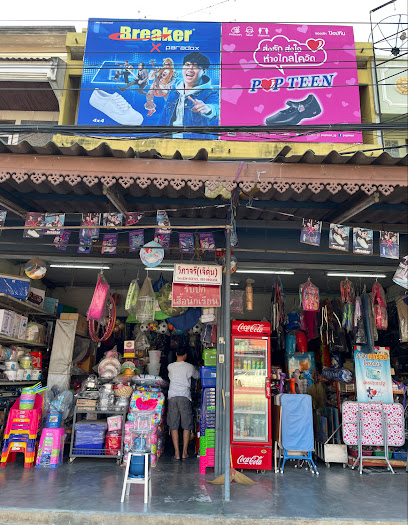
ร้านอีฟ ท่ามะกา
Explore ร้านอีฟ ท่ามะกา, Kanchanaburi's premier cosmetics store for unique Thai beauty products and a cultural shopping experience.
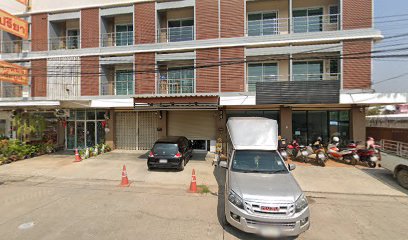
ร้านชุดวาริดาเว็ดดิ้ง Warida Wedding
Discover the finest bridal gowns and personalized wedding services at Warida Wedding in Kanchanaburi, where your dream wedding comes to life.
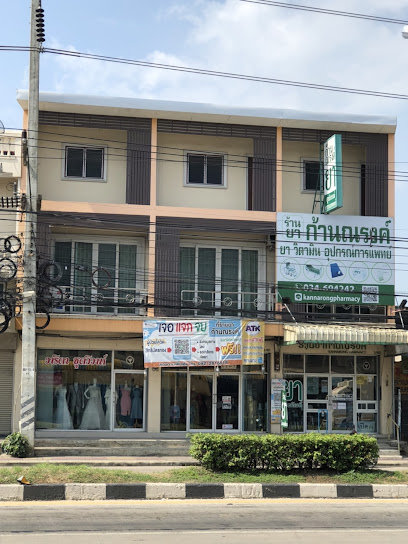
จ๊อบ ซุปเปอร์ใหม่
Explore the vibrant culinary scene at จ๊อบ ซุปเปอร์ใหม่ in Kanchanaburi, where local flavors and fresh ingredients await every visitor.
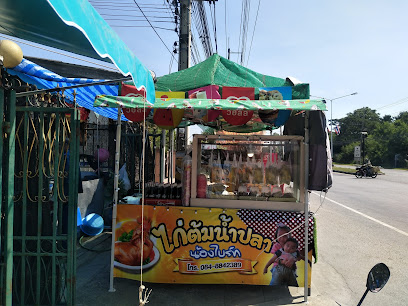
Sara-Eishop
Explore trendy fashion and local designs at Sara-Eishop in Tha Maka, Kanchanaburi—a must-visit clothing store for every traveler.
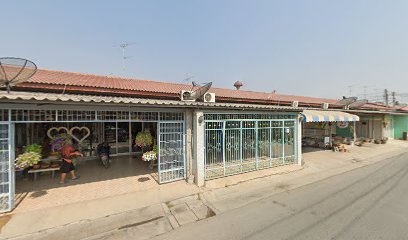
สุ่มกาญ MiniArttoy
MiniArttoy in Tha Maka District: A candy store and doll haven offering delightful sweets and beverages for all ages.

Essential bars & hidden hideouts
Aussie Rules Bar
Experience the vibrant nightlife at Aussie Rules Bar in Kanchanaburi - a perfect blend of fun, flavors, and friendly vibes for every traveler.
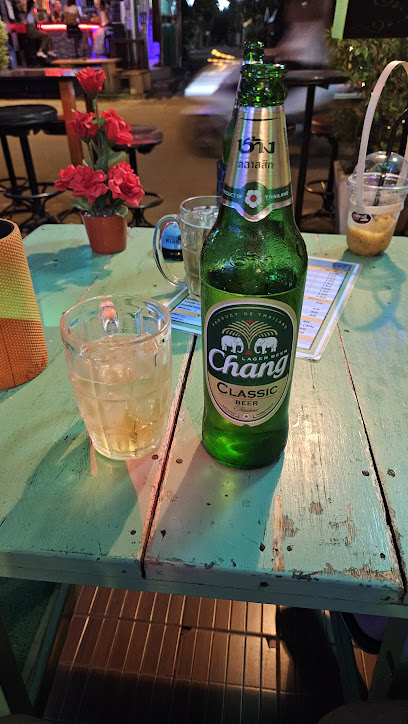
Sugar Member
Experience Kanchanaburi's vibrant nightlife at Sugar Member, a lively bar offering great drinks, fun games, and a welcoming atmosphere.
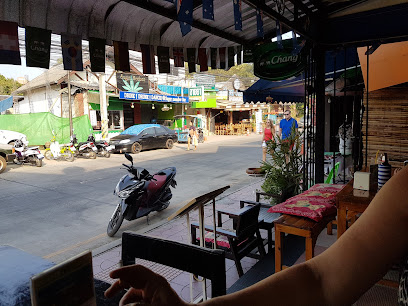
On The Way Coffee and Bar X Chopper
Experience the vibrant flavors and cozy ambiance at On The Way Coffee and Bar X Chopper in Kanchanaburi, the perfect bistro for travelers.
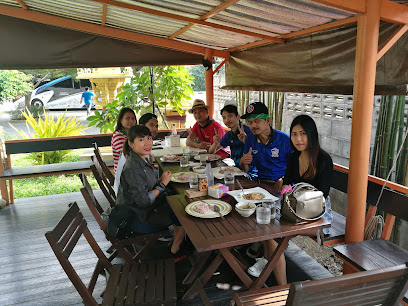
Betty Boop Bar
Experience the vibrant atmosphere of Betty Boop Bar, a charming riverside spot in Kanchanaburi for drinks and relaxation amidst stunning views.
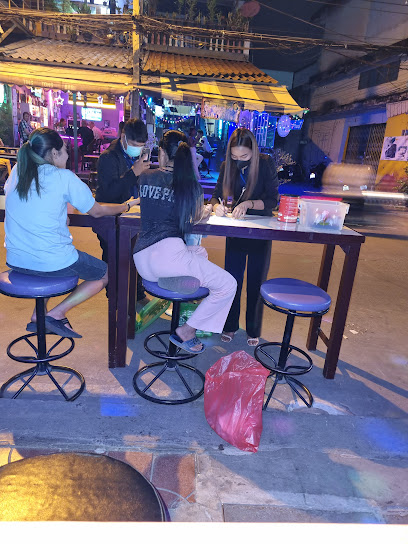
ร้านบาร์บีม
Discover the vibrant nightlife of Kanchanaburi at ร้านบาร์บีม, where locals and tourists mingle over delicious drinks in a lively atmosphere.
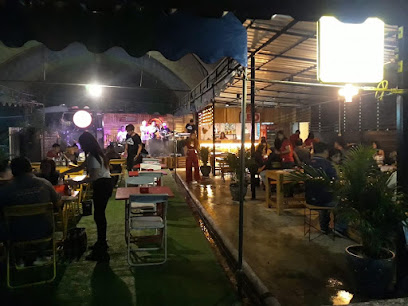
ตะวันแดงอีสานลำซิ่ง มหาชน ณ กาญจนบุรี @ท่ามะกา
Experience the vibrant nightlife at ตะวันแดงอีสานลำซิ่ง, a cultural bar in Kanchanaburi offering local flavors and lively entertainment.
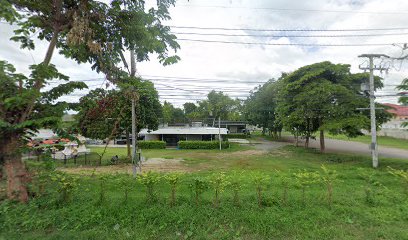
ล้านเล่าแสงชูโต
Explore the rich flavors of Thai cuisine at ร้านล้านเล่าแสงชูโต in Kanchanaburi, a delightful restaurant offering authentic dishes and a cozy atmosphere.
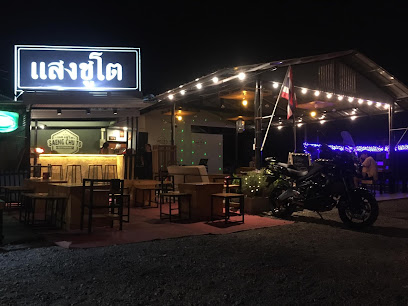
ปังมาดาม & เดอะ ลอฟท์บาร์
Discover the chic ambiance and delightful cocktails at ปังมาดาม & เดอะ ลอฟท์บาร์ in Kanchanaburi, a must-visit bar for an unforgettable experience.
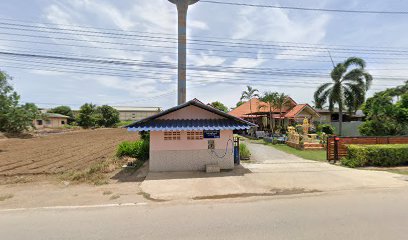
ล้านเล่ามาซิ
Experience the vibrant nightlife of Kanchanaburi at Laan Leo Masi, where local culture and refreshing drinks come together.
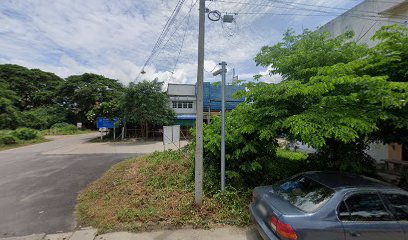
บาร์ชอบกัญ
Enjoy refreshing drinks and a lively atmosphere at บาร์ชอบกัญ in Tha Maka, a perfect spot for nightlife lovers in Thailand.
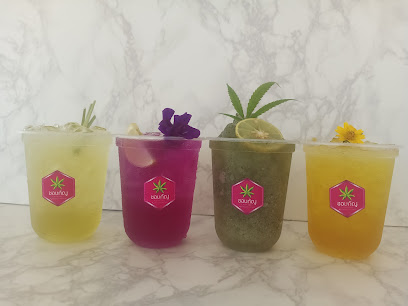
Local Phrases
-
- Helloสวัสดี
[sawasdee] - Goodbyeลาก่อน
[laa kon] - Yesใช่
[chai] - Noไม่
[mai] - Please/You're welcomeโปรด/ขอบคุณ
[proht/khob khun] - Thank youขอบคุณ
[khob khun] - Excuse me/Sorryขอโทษ
[khaw toht] - How are you?สบายดีไหม
[sabai dee mai] - Fine. And you?ดีค่ะ คุณล่ะ
[dee ka khun la] - Do you speak English?คุณพูดภาษาอังกฤษได้ไหม
[khun poot paa saa ang-grit dai mai] - I don't understandฉันไม่เข้าใจ
[chan mai kao jai]
- Helloสวัสดี
-
- I'd like to see the menu, pleaseฉันอยากดูเมนู โปรด
[chan yak du menu proht] - I don't eat meatฉันไม่กินเนื้อ
[chan mai kin neuua] - Cheers!ชนเครื่องดื่ม!
[chon khreung deum] - I would like to pay, pleaseฉันอยากจ่ายเงิน โปรด
[chan yak jai ngern proht]
- I'd like to see the menu, pleaseฉันอยากดูเมนู โปรด
-
- Help!ช่วยด้วย!
[chuai duay] - Go away!ไปไกลๆ!
[bpai glai glai] - Call the Police!โทรตำรวจ!
[toh tamruat] - Call a doctor!โทรหมอ!
[toh mor] - I'm lostฉันหลงทาง
[chan long tang] - I'm illฉันไม่สบาย
[chan mai sabai]
- Help!ช่วยด้วย!
-
- I'd like to buy...ฉันอยากซื้อ...
[chan yak seuu...] - I'm just lookingฉันแค่ดูดู
[chan kae duu duu] - How much is it?ราคาเท่าไร
[raa kha thaai rai] - That's too expensiveแพงเกินไป
[paeng gein pai] - Can you lower the price?ลดราคาได้ไหม
[lot raa kha dai mai]
- I'd like to buy...ฉันอยากซื้อ...
-
- What time is it?ตอนนี้กี่โมง
[ton nee gee mong] - It's one o'clockเวลาหนึ่งโมง
[wela neung mong] - Half past (10)เวลาสามทุ่ม
[wela saam tum] - Morningเช้า
[chao] - Afternoonบ่าย
[bai] - Eveningเย็น
[yen] - Yesterdayเมื่อวาน
[meua waan] - Todayวันนี้
[wan nee] - Tomorrowพรุ่งนี้
[proong nee] - 1หนึ่ง
[neung] - 2สอง
[song] - 3สาม
[saam] - 4สี่
[see] - 5ห้า
[ha] - 6หก
[hok] - 7เจ็ด
[jet] - 8แปด
[paet] - 9เก้า
[gao] - 10สิบ
[sip]
- What time is it?ตอนนี้กี่โมง
-
- Where's a/the...?...อยู่ที่ไหน
[... yoo tee nai] - What's the address?ที่อยู่คืออะไร
[tee yoo keu a-rai] - Can you show me (on the map)?คุณแสดงให้ดูหน่อยได้ไหม
[khun sa-dang hai duu noi dai mai] - When's the next (bus)?รถเมลล์ต่อไปเมื่อไหร่
[roht mel tor bpai meua rai] - A ticket (to ....)ตั๋ว (ไป...)
[dtua (bpai...)]
- Where's a/the...?...อยู่ที่ไหน
History of Tha Maka
-
Tha Maka, located in Kanchanaburi province, has a rich agricultural history, with settlements dating back to the early Ayutthaya period. The fertile land along the River Kwae made it an ideal location for rice cultivation and other agricultural activities. The community's reliance on farming shaped its culture, and traditional practices continue to influence the lifestyle of its inhabitants.
-
During World War II, Tha Maka played a significant role in the construction of the Thai-Burma Railway, famously known as the Death Railway. The area was a point of transit for forced laborers, many of whom were prisoners of war. The railway's construction had a profound impact on the local population and the region's historical narrative, as it is a stark reminder of the wartime atrocities experienced in Kanchanaburi.
-
Tha Maka is known for its vibrant local culture, which is celebrated through various festivals and traditional events. The community often engages in traditional Thai activities, such as rice farming festivals and religious ceremonies, reflecting the area's deep-rooted customs. The Tha Maka Floating Market, which highlights local handicrafts and culinary delights, showcases the region's cultural heritage and attracts visitors from afar.
-
In recent years, Tha Maka has seen a rise in tourism related to its historical significance and natural beauty. Efforts have been made to promote eco-tourism and cultural tourism, allowing visitors to engage with the local community and experience traditional Thai life. Attractions such as the nearby Erawan National Park and various historical sites in Kanchanaburi enhance Tha Maka's appeal as a destination.
-
The residents of Tha Maka have shown remarkable resilience in preserving their cultural identity amid modern changes. Local initiatives focused on heritage conservation and sustainable practices have emerged, aiming to maintain the unique character of the neighborhood while adapting to contemporary demands. This balance between tradition and progress is evident in the community's ongoing efforts to promote local crafts and gastronomy.
Tha Maka Essentials
-
Tha Maka is easily accessible from Kanchanaburi city center, located about 30 kilometers away. You can take a local bus or a minibus from the Kanchanaburi bus terminal, which runs regularly to Tha Maka. Alternatively, taxis and ride-hailing services are available for a more direct route. If you're coming from Bangkok, take a bus or train to Kanchanaburi and then transfer to a local transport option to reach Tha Maka.
-
Tha Maka is a small district, making it easy to explore on foot or by bicycle. Bicycle rentals are available at various locations. Local songthaews (shared taxis) are a convenient way to get around; they operate on set routes and are inexpensive. For longer distances, consider hiring a motorcycle taxi or using ride-hailing apps.
-
Tha Maka is generally safe for tourists, but it’s important to remain vigilant. Avoid walking alone in poorly lit areas at night and keep your belongings secure. While there are no specific high-crime areas targeting tourists, petty theft can occur in crowded places like markets. Always be cautious and trust your instincts.
-
In case of an emergency, dial 1669 for medical assistance or 191 for police services. There are hospitals and clinics in Kanchanaburi city. It's advisable to have travel insurance that covers medical emergencies. For minor health issues, local pharmacies can provide over-the-counter medications.
-
Fashion: Do dress modestly, particularly when visiting temples or local communities. Avoid wearing revealing clothing. Religion: Do respect local customs and traditions, and be mindful of dress codes when entering religious sites. Public Transport: Do be polite and give up your seat to the elderly. Don't eat or drink on public transport. Greetings: Do greet locals with a smile and a slight bow; a handshake is also appropriate. Eating & Drinking: Do try local dishes and accept food offerings graciously. Don't waste food or refuse food, as this can be considered impolite.
-
To experience Tha Maka like a local, visit the food markets and try the street food, which reflects the region's culinary traditions. Engage with locals, as they are often friendly and willing to share insights about the culture. Don't miss the chance to explore local temples, such as Wat Tha Maka, which provide a glimpse into the area's spiritual heritage. Participate in local festivals if your visit coincides with them; these events showcase traditional music, dance, and cuisine.
Trending Landmarks in Tha Maka
Nearby Cities to Tha Maka
-
Things To Do in Bangkok
-
Things To Do in Samut Prakan
-
Things To Do in Ayutthaya
-
Things To Do in Hua Hin
-
Things To Do in Pattaya
-
Things To Do in Rayong
-
Things To Do in Nakhon Ratchasima
-
Things To Do in Trat
-
Things To Do in Sukhothai
-
Things To Do in Chumphon
-
Things To Do in Battambang
-
Things To Do in Hpa-An
-
Things To Do in Koh Kong
-
Things To Do in Loei
-
Things To Do in Siem Reap








